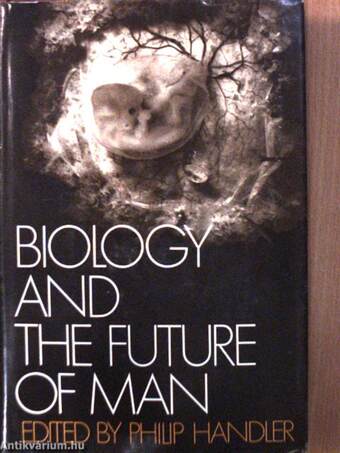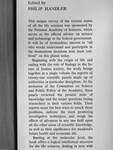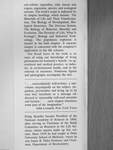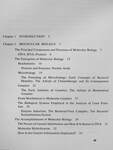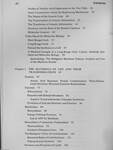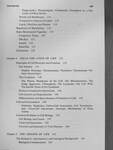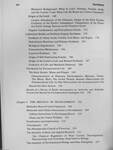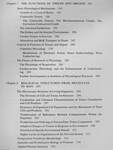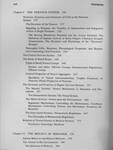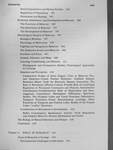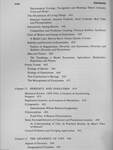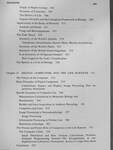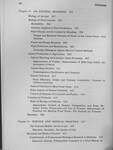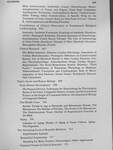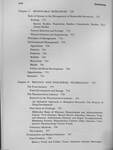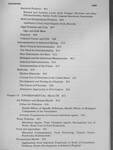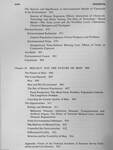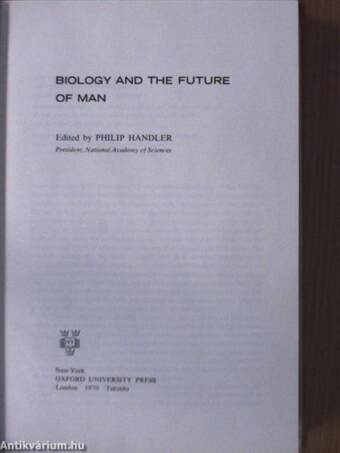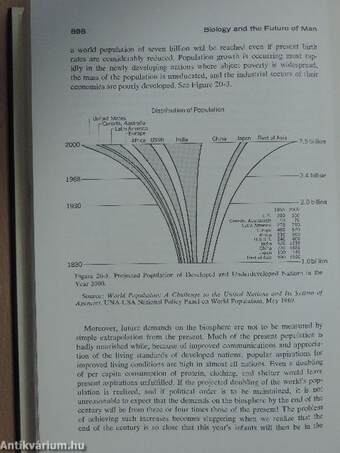1.063.231
kiadvánnyal nyújtjuk Magyarország legnagyobb antikvár könyv-kínálatát

VISSZA
A TETEJÉRE
JAVASLATOKÉszre-
vételek
Biology and the Future of Man
| Kiadó: | Oxford University Press |
|---|---|
| Kiadás helye: | New York |
| Kiadás éve: | |
| Kötés típusa: | Vászon |
| Oldalszám: | 936 oldal |
| Sorozatcím: | |
| Kötetszám: | |
| Nyelv: | Angol |
| Méret: | 24 cm x 16 cm |
| ISBN: | |
| Megjegyzés: | Fekete-fehér fotókkal, illusztrációkkal. |
naponta értesítjük a beérkező friss
kiadványokról
naponta értesítjük a beérkező friss
kiadványokról
Fülszöveg
Edited by
PHILIP HANDLER
This unique survey of the current status
of all the life sciences was sponsored by
the National Academy of Sciences, which
serves as the official adviser on science
and technology to the federal government.
It will be of tremendous interest to "all
who would understand and participate in
the momentous decisions man must con-
front" on this planet today.
Beginning with the origin of life and
ending with the role of biology in the fu-
ture of human society, the study brings
together in a single volume the reports of
twenty-one scientific panels made up of
authorities in particular disciplines. At the
invitation of the Committee on Science
and Public Policy of the Academy, these
panels reviewed the present state of
knowledge and the major questions facing
researchers in their various fields. Their
reports assay the best ways to attack these
problems, indicate the most promising
investigative techniques, and weigh the
effects of... Tovább
Fülszöveg
Edited by
PHILIP HANDLER
This unique survey of the current status
of all the life sciences was sponsored by
the National Academy of Sciences, which
serves as the official adviser on science
and technology to the federal government.
It will be of tremendous interest to "all
who would understand and participate in
the momentous decisions man must con-
front" on this planet today.
Beginning with the origin of life and
ending with the role of biology in the fu-
ture of human society, the study brings
together in a single volume the reports of
twenty-one scientific panels made up of
authorities in particular disciplines. At the
invitation of the Committee on Science
and Public Policy of the Academy, these
panels reviewed the present state of
knowledge and the major questions facing
researchers in their various fields. Their
reports assay the best ways to attack these
problems, indicate the most promising
investigative techniques, and weigh the
effects of advances in any one field upon
all the other areas of scientific knowledge,
as well as their significance for mankind's
future health and economic life.
Starting at the molecular level, the
book offers a logical intellectual structure
for the life sciences, dealing in turn with
sub-cellular organelles, cells, tissues and
organs, organisms, species, and ecological
systems. The book's scope is indicated by
its chapter headings, which include: The
Materials of Life and Their Transforma-
tion, The Biology of Development, Bio-
logical Structures, The Nervous System,
The Biology of Behavior, Heredity and
Evolution, The Diversity of Life, What Is
Ecology?, Biology and Industrial Tech-
nology. The population explosion is
treated in the final chapter. A separate
chapter is concerned with the computer's
application to the life sciences.
The broad focus of the book is on
ways of using our knowledge of living
phenomena for humanity's benefit—in ag-
ricultural and medical practice, in indus-
try, in environmental health, and in the
renewal of resources. Numerous figures
and photographs accompany the text.
. . extraordinarily well-written: a one-
volume encyclopedia on the subject, jar-
gonless, provocative and living up to its
own best intentions as a message ad-
dressed to 'reasonably well-read scientists
and laymen.' . . . each chapter stimulates
some part of the imagination."
John Leonard, New York Times
Philip Handler became President of the
National Academy of Sciences in 1969,
after serving as Chairman of the Study
Committee on Research in the Life Sci-
ences, whose reports make up this vol-
ume. Since 1939 he had taught at Duke
University School of Medicine, where he
was James B. Duke Professor and Chair-
man, Department of Biochemistry. Vissza
Témakörök
- Idegennyelv > Idegennyelvű könyvek > Angol > Természettudományok > Biológia
- Természettudomány > Biológia > Biológia, általános > Sejtbiológia
- Természettudomány > Biológia > Biológia, általános > Genetika
- Természettudomány > Biológia > Biológia, általános > Mikrobiológia > Általában
- Természettudomány > Biológia > Biológia, általános > Idegennyelvű
- Természettudomány > Biológia > Fajfejlődés > Az ember > Fejlődése
- Természettudomány > Biológia > Fajfejlődés > Idegennyelvű
Megvásárolható példányok
Nincs megvásárolható példány
A könyv összes megrendelhető példánya elfogyott. Ha kívánja, előjegyezheti a könyvet, és amint a könyv egy újabb példánya elérhető lesz, értesítjük.



